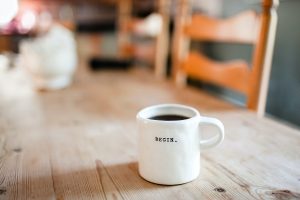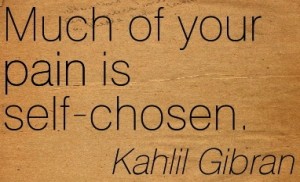Welcome
 This blog is a relaunch of one that I started in 2009 in support of an enthusiastic mid-life relocation to Ireland while embarking on the path of a reluctant entrepreneur.
This blog is a relaunch of one that I started in 2009 in support of an enthusiastic mid-life relocation to Ireland while embarking on the path of a reluctant entrepreneur.
Reluctant because in 2008/09 there were few other choices – and because the gods have a sense of humour. I began training for the work I do now during the great recession of the early eighties when career development work was ‘teaching entrepreneurship’. I’d never expected to be taking my own advice – thirty years later.
You can learn more about my ongoing work, find out about our courses and workshops, and join the conversation at Empowering-Change.com.
Why have a separate blog?
The change I encourage there is an invitation to repair and restore your own sense of self and to bring those lessons and habits into an effort to repair and restore your world.
Globally we’ve seen a post-pandemic shift. There’s less of a call to return to normal than there is a demand for a new normal. One that is focused on the environment, wealth inequality, the millions displaced by climate and conflict – in short the needs of the many over the tyranny of a power elite.
What you’ll read about here are reflections by and about empowered citizens and servant leaders.
My story, other people’s stories, observations about Ireland and Northern Ireland from the lens of this blow-in perpetually frustrated that so many of my neighbours can’t see the possibility and potential of a prosperous future on this island.
More importantly through the lenses of native changemakers who believe that were we to embrace diversity, demand transparency and accountability, and excellence from both taxing authorities things would improve economically, politically and socially.
When we’re less angry about the failures of systems and leadership we can begin to concern ourselves -with a shared future to benefit every citizen rather than fear monger over a need to share an identity or nationhood.
A Culture of Recovery
In a 2012 TEDx talk I related the experience of being shamed by a butcher because my order was not to his liking. Oh, I pushed back, got what I wanted and I do business with his shop this day.
At the time I could often be heard suggesting that what the island needed was its own 12-step program – rooms in which I had learned to unapologetically assert my position and invite further conversation.
The lessons of recovery are developmental and universal.
Well-reared children in all cultures come of age with the skill to live at peace with themselves.
They move from dependent infants to terrible toddlers, to determined and rebellious teens. Through the course of adulthood, they evolve into confident, consensus-seeking adults who negotiate calmly, personally and professionally, to establish their place in the world.
Sadly, most of us don’t experience this ideal and uninterrupted progression. We reach adulthood struggling with dis-ease or discontent.
At best, we wish we were happier at work or at home, at worst we self medicate our dis-ease with substances or behaviours to numb it.
Thankfully if motivated by our discontent, we can all choose change.
Catalysing Conversations & Connections
If you can see it, you can be it.
The first time I heard that it was powerfully uttered by Irish Senator Lynne Ruane.
The occasion was an event convened to honour the memory of a young Irish mother who succumbed to the despair of homelessness – the legacy of an economic recovery that focused on preserving the wealth of a few over the needs of women, children and families.
Notably in direct contravention of the one of the founding principles of the Republic.
Her own story – and book – People Like Me gave voice to the experience of being marginalised – and it gave me hope that a generation of truth tellers was emerging here.
“Few voices ring out as clearly as those who have long been oppressed or silenced. In her heartfelt memoir People Like Me, author Lynn Ruane tells the gripping story of her working-class Dublin life, the kind of life that rarely gets a hearing elsewhere and so she does it with the kind of detail those who have been waiting years to speak up bring to a written work.”–Irish Voice
Her story powerfully illustrates that witnessing our personal stories of change is where societal change begins.
I have been privileged to know changemakers on both sides of the Irish border – and there is power in connecting them with constituencies that can amplify their messages.
We don’t know what we don’t know
It’s an invitation to become curious.
However, a post-conflict society requires more than an invitation.
What’s needed is the kind of relationship building that introduces the safe space that gives over to brave space where trust and compassion can overcome the wilful blindness wrought by generations of the wilfully blind leading the wilfully blind.
Empowering Changemakers
I’m convinced that you can’t teach or evangelise about excellent leadership – but you can witness and celebrate it.
If you recognize the dysfunction of our social, economic and political systems rooted in the dis-ease of our leadership, then we must share the stories to inspire and empower each other to challenge that leadership.
That is the call to “servant leadership”.
And please – email eve@eveearley.com to share your stories.

 I encourage anyone who wants to rethink where they are now and where they are headed to pick up a copy of Julia Cameron’s work. It’s not for artist’s only. Most of the language and methods outlined here are hers. I facilitate groups based on her work – I owe my own creative recovery to the disciplines learned from her.
I encourage anyone who wants to rethink where they are now and where they are headed to pick up a copy of Julia Cameron’s work. It’s not for artist’s only. Most of the language and methods outlined here are hers. I facilitate groups based on her work – I owe my own creative recovery to the disciplines learned from her.